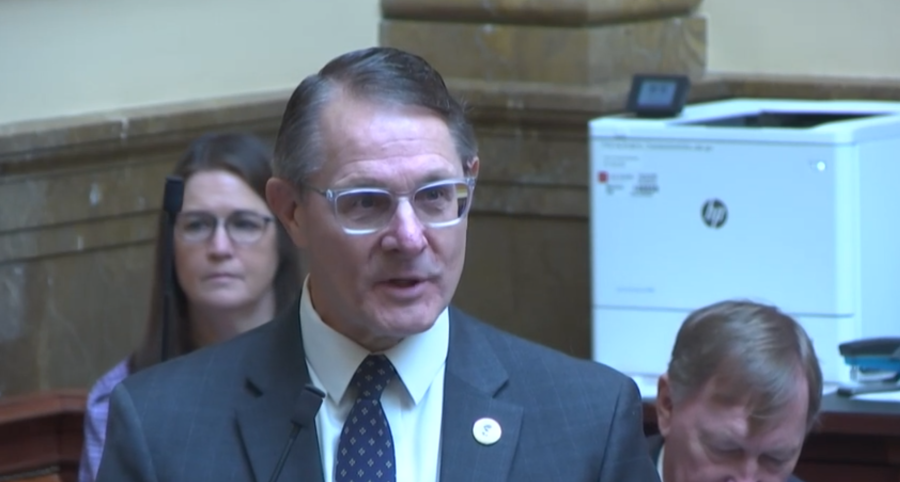Bill would change how books with sensitive material could be removed from Utah school libraries
SALT LAKE CITY (ABC4) — Utah lawmakers are working to change state law over how books could be removed from school libraries, although details still need to be hammered out before it could get to the governor’s desk.
House Bill 29 aims to amend the state’s 2022 sensitive materials law, especially after the Davis School District removed the Bible from some schools last year, making national headlines. (The Bible was later returned to school bookshelves).
Utah bill would drop front license plate requirement in cost-cutting effort
Rep. Ken Ivory (R-West Jordan) ran the 2022 bill and is the sponsor of the amending legislation now before lawmakers. On the House floor, he said HB29 was the result of the interim Education Committee meeting over the summer and their efforts to provide clarification and uniformity for the law.
“Two years ago we passed a bill to prohibit sensitive materials in Utah schools, and since that time, we heard from many schools that they wanted clarification as to what is an objective or a subjective material, when the materials could simply be taken out, when they had to [review] the material as a whole,” Ivory said.

Sen. Todd Weiler (R- Woods Cross), the bill’s floor sponsor, told ABC4 that this bill and the original 2022 legislation aren’t about banning books but removing pornographic material from schools.
“We’ve refined the language to show we’re not going after bodies of scripture,” he told ABC4. “We’re going after really X-rated adult content.”
Critics of the bill have said it would make it so that a handful of individuals could usurp the power of locally-elected school boards to represent their constituents under the review process that’s currently in place.
“With this bill, just a couple of individuals can take away the rights of parents statewide to make choices that best fit their children’s needs,” said Rep. Carol S. Moss (D-Holladay), on the House floor. “This is the antithesis of local control.”
Objective vs. Subjective
H.B. 29 provides definitions for what constitutes “objective sensitive material” or a “subjective sensitive material.”
Material that is objective sensitive would violate the state’s “Bright Line Rule,” which is defined in state code as descriptions of “illicit sex,” such as sexual intercourse or “human genitals in a state of sexual stimulation or arousal.”
Under the bill, books deemed to have objective sensitive material could be taken out of libraries more easily, as local school boards would not be required to undergo an extensive review process.
Subjective sensitive materials are defined as indecent or pornographic materials that don’t violate the Bright Line Rule.
Per the bill’s language, books suspected to have subjective sensitive material would go under a local review, which would include parents. If a book is removed after this process, the school board would need to report it to the state board.
Working out the details
Late last month, the H.B. 29 passed the House on a 51-16 vote. It then went to the Senate, where it was passed with amendments and sent back to the House. On Tuesday, the House opted not to concur with the Senate amendments.
The issue, Ivory told his colleagues in the House, was over uniformity, one of the key things he sought in running H.B. 29.
He said the bill passed by the House made it so that if three districts — or two districts and five charter schools — deemed a book criminally indecent or pornographic, then it would be banned statewide, saving other districts time and money.
The Senate amendments would tweak that.
“Our fellow body decided that every single school district should then hold hearings to decide whether or not to keep or retain [a book]. And that just defeats the purpose … to have uniformity,” Ivory said on the House floor.
Weiler, the bill’s floor sponsor, told ABC4 that he made edits to the bill in the Senate committee, which the House refused. Since he doesn’t plan to recede from his edits, he expects the bill will go to conference committee.
“We’ll try to reach a compromise in conference committee, which I expect we will,” he said, adding that he believes the bill will pass the legislature before the end of the session.
Renée Pinkney, president of Utah Education Association, is another critic of the bill. Like Moss, she is concerned about local control and wants decisions on books to be made at the community level.
“So when we look at having three districts, or two districts and five charter schools, determine if a book is going to be banned across the state, that is really taking away local autonomy from school districts and school boards,” she said. “Those board members are elected by their constituents, and we believe that this should be something that the local district and the local school board determines, not something that is across the board.”
For the latest news, weather, sports, and streaming video, head to ABC4 Utah.

